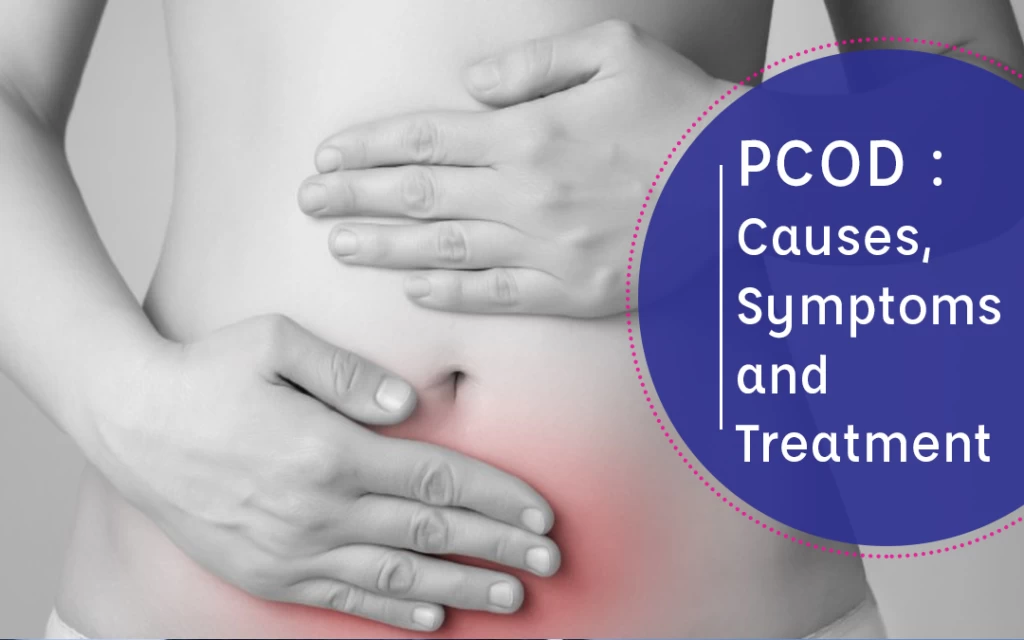Polycystic Ovary Disease (PCOD), also known as Polycystic Ovary Syndrome (PCOS), is a common endocrine disorder affecting women of reproductive age. Characterized by hormonal imbalances, irregular menstrual cycles, and the presence of multiple cysts on the ovaries, PCOD can significantly impact a woman’s health and quality of life. Fortunately, women in Munirka have access to a variety of effective treatment options and expert care. This article provides an in-depth look at PCOD treatment in Munirka, highlighting the causes, symptoms, and available non-surgical treatments to help manage this condition effectively.
Understanding PCOD
Causes of PCOD
Though its precise etiology is uncertain, PCOD is influenced by a number of factors:
- Genetic Factors: PCOD often runs in families, suggesting a genetic component.
- Insulin Resistance: Many women with PCOD have insulin resistance, leading to higher insulin levels that can increase androgen production, causing ovulatory dysfunction.
- Hormonal Imbalance: Elevated levels of androgens (male hormones) can disrupt the regular menstrual cycle and prevent the ovaries from releasing eggs.
Symptoms of PCOD
Symptoms of PCOD can vary widely among women, but common signs include:
- Irregular or missed menstrual periods
- Excessive hair growth (hirsutism) on the face, chest, and back
- Acne and oily skin
- Weight gain or difficulty losing weight
- Thinning hair or hair loss on the scalp
- Darkening of the skin, particularly along neck creases, in the groin, and under the breasts
- Multiple cysts on the ovaries, detected through ultrasound
Diagnosis of PCOD
Diagnosis of PCOD typically involves a combination of physical examinations, medical history, and diagnostic tests:
- Physical Examination: Look for indications of acne, insulin resistance, and excessive hair growth.
- Medical History: Discussing menstrual cycle irregularities, weight changes, and family history of PCOD.
- Blood Tests: measuring insulin, glucose, and testosterone levels, among other hormones.
- Ultrasound: Imaging of the ovaries to check for the presence of cysts.
Non-surgical Treatments for PCOD in Munirka
PCOD treatment focuses on managing symptoms, regulating menstrual cycles, and addressing underlying hormonal imbalances. PCOD Treatment in Munirka offers patients access to a variety of non-surgical treatment options tailored to their individual needs. In Munirka, women have access to a variety of non-surgical treatment options tailored to their individual needs.
Lifestyle Modifications
Lifestyle changes are often the first line of treatment for PCOD and can significantly improve symptoms:
- Diet: A balanced diet rich in whole grains, lean proteins, fruits, and vegetables can help regulate insulin levels and promote weight loss. Reducing intake of refined carbohydrates and sugary foods is also beneficial.
- Exercise: Regular physical activity can improve insulin sensitivity, aid in weight loss, and reduce symptoms of PCOD. Aim for at least 30 minutes of moderate activity most days of the week.
- Weight Management: Weight loss, even small-scale, can improve the effectiveness of medications and regulate the menstrual cycle.
Medications
Several medications can help manage PCOD symptoms and hormonal imbalances:
- Oral Contraceptives: Birth control pills can regulate menstrual cycles, reduce androgen levels, and improve acne and excessive hair growth.
- Metformin: This medication, commonly used to treat type 2 diabetes, can improve insulin resistance and help regulate menstrual cycles in women with PCOD.
- Anti-Androgen Medications: Drugs like spironolactone can reduce excessive hair growth and acne by blocking the effects of androgens.
- Clomiphene: For women trying to conceive, clomiphene can stimulate ovulation.
Natural and Herbal Remedies
Some women find relief from PCOD symptoms using natural and herbal remedies:
- Inositol: A type of vitamin B that can improve insulin sensitivity and reduce symptoms of PCOD.
- Cinnamon: This spice has been shown to improve insulin sensitivity and regulate menstrual cycles.
- Spearmint Tea: Drinking spearmint tea twice daily may help reduce androgen levels and excessive hair growth.
Holistic and Complementary Therapies
Holistic and complementary therapies can support the overall health and well-being of women with PCOD:
- Acupuncture: This traditional Chinese medicine technique may help regulate menstrual cycles and reduce PCOD symptoms by balancing the body’s energy flow.
- Yoga and Meditation: These practices can reduce stress, improve insulin sensitivity, and promote hormonal balance.
Specialized Care in Munirka
Women in Munirka benefit from access to specialized healthcare providers experienced in managing PCOD. Clinics like Sharma Polyclinic offer comprehensive care, including:
Expert Consultations
Consulting with a gynecologist or endocrinologist is crucial for an accurate diagnosis and personalized treatment plan. These specialists can provide:
- Individualized Care Plans: Tailored treatment strategies based on the patient’s symptoms, medical history, and treatment goals.
- Ongoing Monitoring: Regular follow-ups to assess the effectiveness of treatments and make necessary adjustments.
- Patient Education: Information on managing PCOD, including lifestyle changes, medication options, and self-care strategies.
Advanced Diagnostic Tools
State-of-the-art diagnostic facilities in Munirka ensure accurate and timely diagnosis of PCOD. Advanced imaging and laboratory tests help healthcare providers develop effective treatment plans.
Support Services
Comprehensive care for PCOD includes access to support services such as:
- Dietitians: Expert guidance on nutrition and weight management.
- Mental Health Professionals: Counseling and support for managing the emotional and psychological impact of PCOD.
- Support Groups: Connect with other women who have PCOD for shared experiences and support.
Importance of Early Diagnosis and Treatment
Early diagnosis and treatment of PCOD are crucial for managing symptoms and preventing long-term complications such as type 2 diabetes, cardiovascular disease, and infertility. Women experiencing symptoms of PCOD should seek medical advice promptly to explore their treatment options.
Conclusion
PCOD is a manageable condition with the right treatment and lifestyle modifications. Women in Munirka have access to a wide range of non-surgical treatments and specialized care to help manage their symptoms and improve their quality of life. PCOD Treatment in Munirka offers patients comprehensive care options tailored to their individual needs. By working with experienced healthcare providers and making informed lifestyle choices, women with PCOD can lead healthy, fulfilling lives. For expert care and personalized treatment plans, visit Sharma Polyclinic and take the first step toward effective PCOD management.


